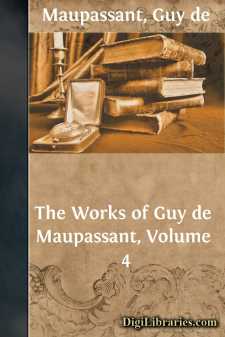Categories
- Antiques & Collectibles 13
- Architecture 36
- Art 48
- Bibles 22
- Biography & Autobiography 813
- Body, Mind & Spirit 142
- Business & Economics 28
- Children's Books 14
- Children's Fiction 11
- Computers 4
- Cooking 94
- Crafts & Hobbies 4
- Drama 346
- Education 46
- Family & Relationships 57
- Fiction 11828
- Games 19
- Gardening 17
- Health & Fitness 34
- History 1377
- House & Home 1
- Humor 147
- Juvenile Fiction 1873
- Juvenile Nonfiction 202
- Language Arts & Disciplines 88
- Law 16
- Literary Collections 686
- Literary Criticism 179
- Mathematics 13
- Medical 41
- Music 40
- Nature 179
- Non-Classifiable 1768
- Performing Arts 7
- Periodicals 1453
- Philosophy 64
- Photography 2
- Poetry 896
- Political Science 203
- Psychology 42
- Reference 154
- Religion 513
- Science 126
- Self-Help 84
- Social Science 81
- Sports & Recreation 34
- Study Aids 3
- Technology & Engineering 59
- Transportation 23
- Travel 463
- True Crime 29
A Versailles Christmas-Tide
by: A. S. Boyd
Description:
Excerpt
CHAPTER I
THE UNEXPECTED HAPPENS
No project could have been less foreseen than was ours of wintering in France, though it must be confessed that for several months our thoughts had constantly strayed across the Channel. For the Boy was at school at Versailles, banished there by our desire to fulfil a parental duty.
The time of separation had dragged tardily past, until one foggy December morning we awoke to the glad consciousness that that very evening the Boy would be with us again. Across the breakfast-table we kept saying to each other, "It seems scarcely possible that the Boy is really coming home to-night," but all the while we hugged the assurance that it was.
The Boy is an ordinary snub-nosed, shock-headed urchin of thirteen, with no special claim to distinction save the negative one of being an only child. Yet without his cheerful presence our home seemed empty and dull. Any attempts at merry-making failed to restore its life. Now all was agog for his return. The house was in its most festive trim. Christmas presents were hidden securely away. There was rejoicing downstairs as well as up: the larder shelves were stored with seasonable fare, and every bit of copper and brass sparkled a welcome. Even the kitchen cat sported a ribbon, and had a specially energetic purr ready.
Into the midst of our happy preparations the bad news fell with bomb-like suddenness. The messenger who brought the telegram whistled shrilly and shuffled a breakdown on the doorstep while he waited to hear if there was an answer.
"He is ill. He can't come. Scarlet fever," one of us said in an odd, flat voice.
"Scarlet fever. At school. Oh! when can we go to him? When is there a boat?" cried the other.
There was no question of expediency. The Boy lay sick in a foreign land, so we went to him. It was full noon when the news came, and nightfall saw us dashing through the murk of a wild mid-December night towards Dover pier, feeling that only the express speed of the mail train was quick enough for us to breathe in.
But even the most apprehensive of journeys may hold its humours. Just at the moment of starting anxious friends assisted a young lady into our carriage. "She was going to Marseilles. Would we kindly see that she got on all right?" We were only going as far as Paris direct. "Well, then, as far as Paris. It would be a great favour." So from Charing Cross to the Gare du Nord, Placidia, as we christened her, became our care.
She was a large, handsome girl of about three-and-twenty. What was her reason for journeying unattended to Cairo we know not. Whether she ever reached her destination we are still in doubt, for a more complacently incapable damsel never went a-voyaging. The Saracen maiden who followed her English lover from the Holy Land by crying "London" and "À Becket" was scarce so impotent as Placidia; for any information the Saracen maiden had she retained, while Placidia naively admitted that she had already forgotten by which line of steamers her passage through the Mediterranean had been taken....












